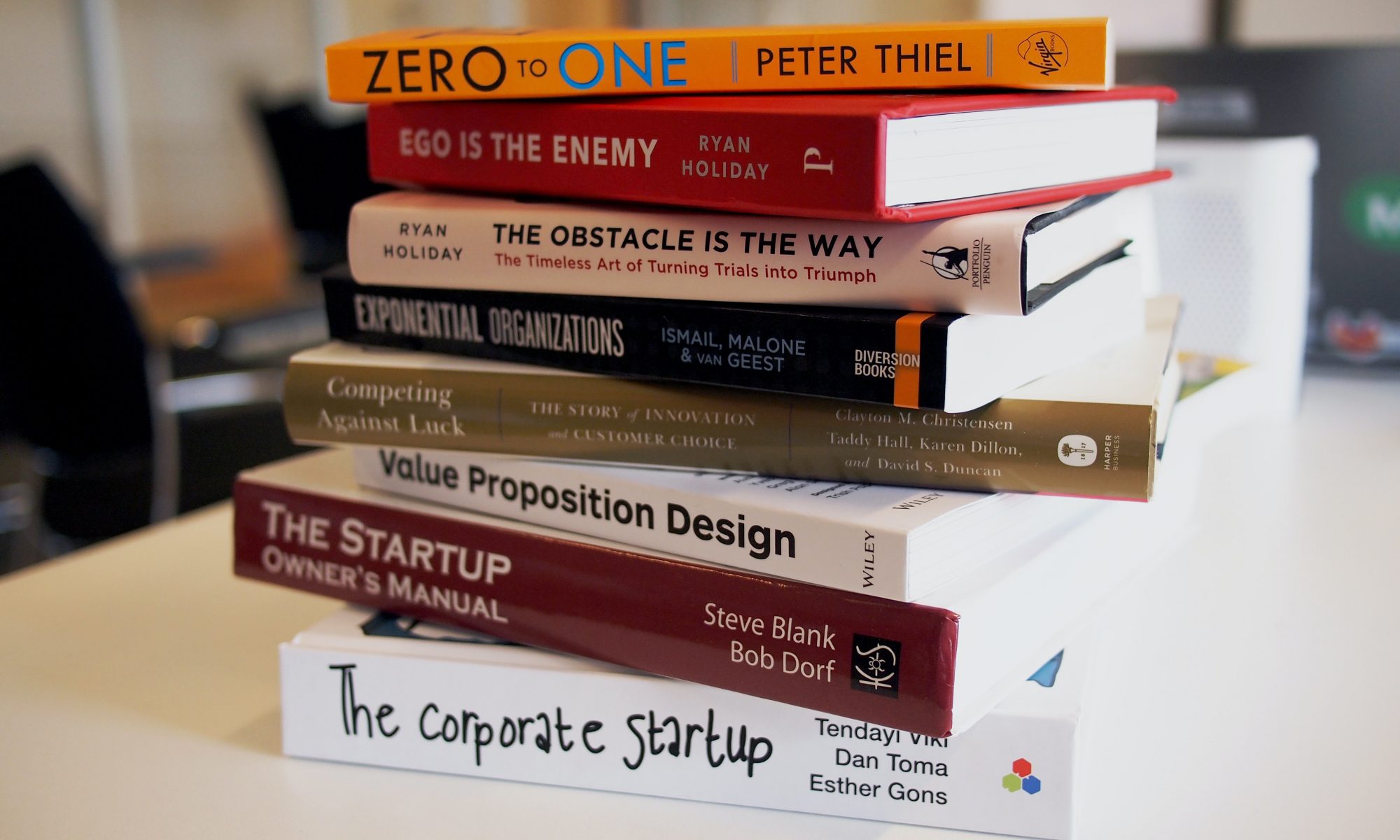Startup accelerators are going virtual in response to the coronavirus pandemic
The Ewing Marion Kauffman Foundation (2020) offers a clear and succinct definition: “Accelerators are entrepreneurship support programs primarily aimed at helping participating startups scale-up and access early customers.” They are cohort-based, fixed-term programs — typically 3 to 12 months — that offer intensive mentoring, training, networking, and workspace for early-stage, growth-driven companies. Their intent is to increase the growth rate of a company by condensing two years of business building into a few months’ time. A common feature is assistance with investment fundraising in exchange for an equity position.
Being organizationally diverse, accelerators can be publicly or privately funded, focus on different types of entrepreneurs, industries, and business activities, and look for unique applicant characteristics in their selection process, which is highly competitive. Others are corporate accelerators that are sponsored by large companies (e.g., Barclays, Disney, Microsoft, Sprint). Being chosen to be part of an accelerator translates into real-time recognition, which is valuable to entrepreneurs. Graduation often takes the form of a “demo day” event, with startup owners delivering their pitch deck to an audience of angel investors, venture capitalists, media representatives, and other stakeholders.
Startup accelerators are invaluable resources for entrepreneurs, but the COVID-19 plot twist is causing them to rethink their operations and create new virtual programs.
A Brief History
Accelerators came on the scene in the mid-2000s. Some of the earliest and better-known accelerators include Y Combinator (2005), Techstars (2006), Seedcamp (2007), Tech Wildcatters (2009), Startupbootcamp (2010), and SOSV’s six programs — Chinaccelerator (2010), HAX Accelerator (2011), MOX (2012), Indiebio (2014), Rebelbio (2014),[1] and Food-X (2014).
The startup accelerator concept evolved and spread rapidly in the U.S., then Europe, and throughout the globe. In 2016, the Gust Global Accelerator Report informed readers that $206,740,005 had been invested worldwide in 11,305 startups by 579 accelerator programs in 68 countries. Varying widely in their design features, the popularity of accelerators has been fueled by technological advances, the rapid rise of entrepreneurship, and value propositions that attract a number of stakeholders in the startup ecosystem.
Included in the 2018 Seed Accelerator Rankings are pioneers like Y Combinator and Techstars, along with newer startup accelerators such as AngelPad, The Alchemist Accelerator, Amplify LA, Chicago New Venture Challenge, MuckerLab, StartX, and others.
Accelerator Impact
Research indicates the jury is still out in terms of measuring the overall impact of accelerators. It is not clear whether startup firms attract more investment than they would if they had not participated in an accelerator program (Cohen, Feder, Hochberg, & Murray, 2019). There is stronger evidence that startups participating in accelerators have an increased likelihood of being acquired, quitting, or receiving follow-on venture capital financing (Smith & Hannigan, 2015). Accelerator startups have also been found to achieve better long-term outcomes in terms of funding, web traffic and employee growth, in comparison to similar “almost-accepted” program applicants (Hallen, Cohen & Bingham, 2019).
What appears to be particularly valuable to startup owners are the close relationships developed between themselves and other program peers. This typically means spending time on-site with other like-minded professionals. But the advent of COVID-19 and related stay-at-home orders has made these trying times anything but typical. To adjust, startup accelerators are pivoting to recovery strategies, remote meetings with mentors, and posting virtual pitches online.
COVID-19 Response
Outlined below are several examples of how startup accelerators have evolved in response to the COVID-19 crisis.
CDL Recovery: Rapid Response Innovation Program
The Creative Destruction Lab (CDL), operating five sites in Canada, one in the U.S., and two in Europe, has launched a global program — the CDL Recovery Program. CDL Recovery focuses on information-based solutions to accelerate the world’s recovery from the COVID-19 pandemic. Examples include, but are not limited to: (1) swab-based tests that predict whether the coronavirus is present in an individual; (2) contact tracing; (3) image analysis of people density or proximity; (4) symptom monitoring; and (5) workplace monitoring of air or sewage.
Applicant competition is open to startups, corporations, informal collaborations, social inventors, social impact ventures, and not-for-profit initiatives. There are no fees for participation and CDL does not take an equity position.
IgnitedX COVID-19 Response Accelerator
Kansas City’s newest startup is IgnitedX COVID-19 Response Accelerator, the brainchild of Black & Veatch and LaunchKC. The virtual accelerator will commit a minimum of $250,000 in grants or in-kind services to startups dealing with testing and screening technologies, disease-tracking software, and emergency medical facilities to assist with relief efforts during the COVID-19 pandemic. It will also explore other solutions to COVID-19 problems, such as remote collaboration software and tools, biotech-related services, supply chain solutions, and modular communications (like providing Wi-Fi kiosks in underserved communities).
IgniteX COVID-19 Response Accelerator builds upon the Black & Veatch Cleantech Accelerator, which selected seven startups for its program last year. The B&V Cleantech Accelerator focuses on tech solutions for the engineering industry and is part of the LaunchKC umbrella of programs.
Microsoft Global Social Entrepreneurship Program
In response to the COVID-19 crisis, applications are being accepted for the Microsoft Global Social Entrepreneurship Program. Available in 140 countries, the program provides a mix of technical and business support with grant funding to help startup entrepreneurs advance innovative solutions in healthcare, sustainability, and accessibility. Qualified startups receive access to free Microsoft cloud technologies and up to $120,000 in Azure credits. A dedicated program manager helps startups market and sell their solutions, as well as to potential customers, including leading enterprises and nongovernmental organizations.
Plug and Play COVID-19 Accelerator
Plug and Play has launched a global COVID-19 Accelerator that is dedicated to scaling the world’s most promising startups that can help address the coronavirus pandemic. According to their website, the program focuses on existing technologies that can achieve massive scale across six tracks: healthcare, enterprise, retail, finance, travel, and supply chain.
Plug and Play acknowledges that the coronavirus has disrupted global supply chains and business models, which in turn has transformed the nature of work and placed unprecedented pressure on health systems and public institutions. As a catalyst for adaptation and innovation, the COVID-19 Accelerator will connect leading corporations, governments, non-profit organizations, and investors with Plug and Play’s ecosystem of 20,000 startups, with technologies ranging from computer vision and diagnostics, cybertech and collaboration tools, blockchain and automation — with the intent to flatten the curve and build the capabilities necessary to thrive in the new normal.
Qualcomm Small Business Accelerator Program
Qualcomm has unveiled the Qualcomm® Small Business Accelerator Program, which is designed to help small businesses transition to a mobile-first work environment using its connected technologies. The comprehensive program will provide support for small businesses across various industries, so they can continue to maintain operations throughout the current global pandemic and beyond.
The Qualcomm Small Business Accelerator Program, Qualcomm Technologies and its ecosystem partners — Best Buy Business™ (technical support), Citrix® (digital workspace solutions, Lenovo™ (5G-enabled PCs), Linksys® (Wi-Fi networking devices), Samsung (PCs and mobile devices), Sophos (security software solutions), and Targus® (mobile docking stations) — will select 25 small businesses to receive products and technical support valued at up to $25,000. Customized to the needs of the selected businesses, the program will infuse a variety of devices powered by various computer and connectivity solutions from Qualcomm Technologies, such as Always-Connected PCs (cellular-connected laptops), Wi-Fi systems, mobile phones, Bluetooth enabled headsets and active mobile hotspots, and technical support from other key partners. With more businesses depending on cloud-based solutions, these connected products offer enhanced productivity and security for small businesses.
UTSA COVID-19 Business Recovery Accelerator
The University of Texas at San Antonio (UTSA) Institute for Economic Development launched the Small Business Development Center COVID-19 Business Recovery Accelerator (COBRA) to help small businesses weather the financial hardships caused by the coronavirus pandemic. COBRA is billed as the only recovery accelerator of its kind in Texas to help stabilize and rebuild the small business economy.
COBRA will serve as a single “front door” to help small businesses in Bexar County and 10 surrounding counties with access relief, recovery, rebooting, and resilience resources. The Business Recovery Accelerator will help participating businesses navigate federal funding opportunities, provide confidential, no-cost consulting in finance, human resources, operations, marketing, and business and strategic planning with the goal of winning back and finding new customers.
To make South Texas’ economy more resilient, COBRA will also help small businesses scale up their operations and become more competitive through importing and exporting, contracting, market research, technology commercialization and emergency preparedness.
COVID-19 is changing the way we live and how businesses operate. For those who work in the digital world — startup accelerators are decidedly tech-centric — innovative efforts are underway to help ease the pain. Thanks to technology, accelerator founders and startup entrepreneurs are able to advance, while maintaining access to funding, networking, and potential investors.
Editor’s Note: [1] Rebelbio has since merged with SOSV’s Indiebio brand in New York City.
###


